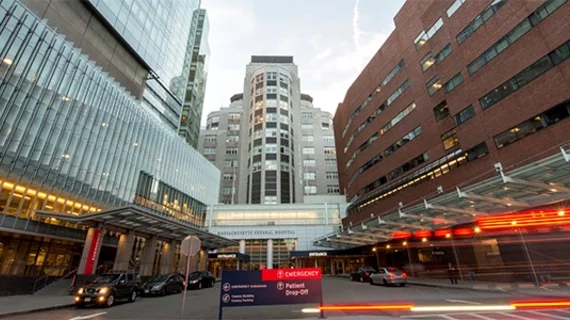Mass General’s radiology expansion plans ‘threaten’ healthcare affordability, state watchdog warns
Mass General Brigham’s plans to expand radiology and other services “threaten” healthcare affordability in the Bay State, an independent agency charged with overseeing spending growth said Tuesday.
The state’s largest hospital system is eyeing three big-ticket projects that would bolster access to imaging, among other gains. But the Massachusetts Health Policy Commission is concerned the additions would only exacerbate rising costs in the Commonwealth.
Competitors are expected to lose upward of $261 million in commercial revenue each year if the Mass General Brigham moves forward with the updates, the commission estimated. And these institutions already face fewer financial resources and lower average prices for commercially insured patients while serving larger proportions of the state.
“Mass General Brigham has a spending problem,” commission Chair Stuart Altman, PhD, said Jan. 25. “Its spending performance and plan for new expansions at their flagship hospitals and into the Boston suburbs raise significant concerns, as documented by the HPC today. In fact, continuing in this manner is likely to impact the state’s ability to meet its spending benchmark and could do serious harm to the structure of the state’s delivery system.”
Massachusetts created the commission under a 2012 cost containment law, tasking the agency with monitoring spending and providing data-driven policy recommendations. Examining trends from 2014-2019, Altman and colleagues said Mass General Brigham has had more cumulative commercial spending in excess of the state benchmark than any other provider, at $293 million. Ongoing cost-containment efforts are not working, and the commission is now requiring the system to develop a performance improvement plan.
MGB is a world-renowned integrated delivery system formerly known as Partners Healthcare, which includes Harvard-affiliated institutions Massachusetts General Hospital and Brigham and Women’s. In a statement, the organization said it is disappointed with the commission’s decision and believes the conclusions are based on outdated financial details. Mass General Brigham emphasized that it treats some of the sickest and most complex cases in the Commonwealth.
“The [Health Policy Commission’s] refusal to acknowledge the acuity of our patients in its judgment of healthcare spending is short-sighted and unfair, especially to patients. The role Mass General Brigham has played during the pandemic should make that clear,” MGB said in a statement. “While we strongly disagree with the HPC’s decision, we are committed to working alongside them to address the challenge of healthcare costs in Massachusetts while continuing our efforts to overcome the multiple crises brought by the pandemic.”
MGB’s proposed expansion plans would cost nearly $2.3 billion and include upgrades at two Boston hospitals and the creation of new ambulatory sites in Westborough, Westwood and Woburn. Each of the three additions would offer imaging services including CT and MRI, altogether costing nearly $224 million to erect. The health system wants to invest another almost $1.9 billion in the flagship Mass General Hospital, which would include centralizing radiology services and adding two MRI units, two CTs, one PET/MR and one PET/CT. Another $150 million would go toward Brigham & Women’s Faulkner Hospital and also involve centralizing imaging services while adding an MRI unit, according to a slide presentation.
The Massachusetts Health Policy Commission noted that most patients who would receive outpatient imaging through the expanded hospital capacity likely would have done so through non-MGB hospitals. Those alternative options likely would offer lower price points, the agency added. Mass General Hospital would gain roughly $4.6 million in new annual commercial revenue for CT and MRI alone following the upgrades, resulting in $4.1 million in losses absorbed by other providers. Meanwhile, Faulkner Hospital would gain $788,000 more in MRI revenue, pulling $879,000 away from competitors.
“Much of this shift is in relatively high-margin service lines like ambulatory surgery and imaging, which providers rely on to balance the cost of more resource-intensive and lower reimbursement care,” the commission noted in its presentation. “Shifts in public payer patients would also further reduce revenue for other provider organizations, regardless of whether those shifts would increase or decrease total spending.”
HPC estimated that annual commercial spending on advanced imaging would increase at Mass General Hospital by about $573,000 while declining at Faulkner by $91,000. Altogether, the expansion plans would increase commercial spending in the state by upward of $90 million, translating into higher commercial insurance premiums for Massachusetts stakeholders.
Mass General Brigham has 45 days to file a proposed performance improvement plan, the first ever such request by the commission. Noncompliance could result in a maximum penalty of $500,000. The institution can also request a waiver from the requirement or extension of the filing deadline. Axios noted that the state’s efforts could serve as a template for regulating rising physician and hospital spending elsewhere.

